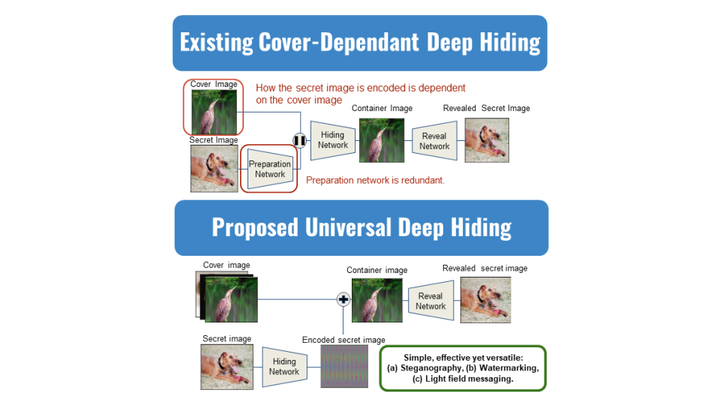
Abstract
Neural networks have been shown effective in deep steganography for hiding a full image in another. However, the reason for its success remains not fully clear. Under the existing cover (C) dependent deep hiding (DDH) pipeline, it is challenging to analyze how the secret (S) image is encoded since the encoded message cannot be analyzed independently. We propose a novel universal deep hiding (UDH) meta-architecture to disentangle the encoding of S from C. We perform extensive analysis and demonstrate that the success of deep steganography can be attributed to a frequency discrepancy between C and the encoded secret image. Despite $S$ being hidden in a cover-agnostic manner, strikingly, UDH achieves a performance comparable to the existing DDH. Beyond hiding one image, we push the limits of deep steganography. Exploiting its property of being universal, we propose universal watermarking as a timely solution to address the concern of the exponentially increasing number of images and videos. UDH is robust to a pixel intensity shift on the container image, which makes it suitable for challenging application of light field messaging (LFM). Our work is the first to demonstrate the success of (DNN-based) hiding a full image for watermarking and LFM.